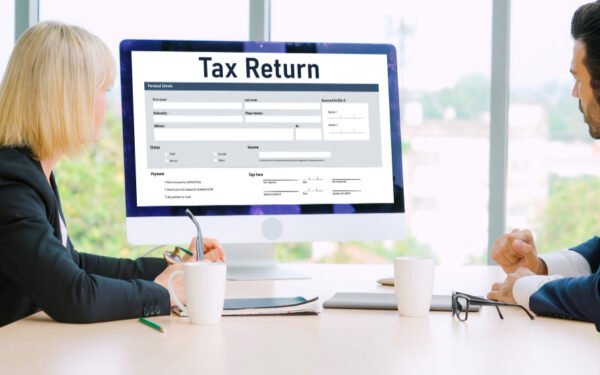How to Protect Your Credit Card from Being Cloned
In recent years, incidents of credit card cloning have raised significant concerns about the security of personal financial information. From sophisticated scams to opportunistic fraud at restaurants and cafes, the methods used to steal card data are diverse and continually evolving. Understanding how to protect yourself from credit card cloning is crucial in today’s digital age.

Contents
- 1 Safeguarding Your Card in Public Places
- 2 Embrace Chip Technology
- 3 Sign Your Card
- 4 Protect Your PIN
- 5 Monitoring Your Accounts
- 6 Additional Security Measures
- 7 Utilizing Secure Payment Methods
- 8 Educating Yourself and Others
- 9 Physical Card Security
- 10 Consumer Protection and Liability
- 11 Vigilance in Everyday Transactions
- 12 Conclusion
Safeguarding Your Card in Public Places
One of the most vulnerable scenarios for credit card cloning is during transactions at restaurants or cafes. The ease with which waiter staff can clone a card during payment makes it a high-risk moment. To mitigate this risk, it’s essential to always keep your card within your sight. Request that the restaurant bring a mobile point-of-sale (POS) device to your table for payment, or alternatively, walk to the billing desk yourself to swipe the card. This precaution significantly reduces the opportunity for your card information to be surreptitiously captured.
Embrace Chip Technology
Most modern credit and debit cards are equipped with EMV (Europay, Mastercard, Visa) chip technology, which provides enhanced security over traditional magnetic stripe cards. EMV cards require a unique PIN to be entered during transactions, adding a robust layer of protection against cloning. When using your card, opt for chip transactions whenever possible and avoid using older magnetic stripe readers, which are more susceptible to skimming devices and cloning techniques employed by fraudsters.
Sign Your Card
Though seemingly simple, signing the back of your card serves an essential purpose. It provides merchants with a method to verify your identity when making purchases. This small step can prevent unauthorized use if your card is lost or stolen. Always remember to sign your card as soon as you receive it, and if the signature fades over time, consider reapplying it to maintain its effectiveness.
Protect Your PIN
Your Personal Identification Number (PIN) is another critical safeguard against unauthorized access to your funds. Never share your PIN with anyone, and avoid writing it down where it could be easily found. Periodically change your PIN to further reduce the risk of unauthorized transactions, even if your card has not been compromised. This proactive measure ensures that even if your card details are obtained, the PIN acts as an additional barrier against misuse.
Monitoring Your Accounts
Regularly monitoring your bank and credit card statements is crucial for detecting any unauthorized transactions promptly. Most financial institutions offer online banking and mobile apps that allow you to review transactions in real-time. Report any suspicious activity immediately to your bank or card issuer. Early detection can minimize potential losses and expedite the process of recovering any stolen funds.
Additional Security Measures
In addition to these proactive steps, consider enabling alerts on your accounts for transactions exceeding a certain amount or occurring in unusual locations. Some banks offer two-factor authentication (2FA) for online transactions, adding an extra layer of security beyond just entering your card details.
Utilizing Secure Payment Methods
When shopping online, use reputable websites that offer secure payment methods such as PayPal or virtual card numbers. These services can further insulate your primary card information from potential breaches at online merchants. Virtual card numbers provide a one-time use token that masks your actual card details, preventing them from being compromised if the merchant’s database is breached.
Educating Yourself and Others
Educating yourself about the latest scams and security threats is crucial in protecting your financial information. Stay informed about new technologies and best practices for safeguarding your cards. Share this knowledge with family and friends to help them protect themselves as well.
Physical Card Security
Beyond digital threats, physical security of your card is equally important. Keep your card in a secure place and be cautious about sharing your card information over the phone or through unsecured websites. Shred any documents that contain your card details before disposing of them to prevent dumpster diving fraud.
Consumer Protection and Liability
Understand the consumer protection policies and liability limits provided by your bank or card issuer. In many cases, you are protected from liability for unauthorized transactions if you report them promptly. Familiarize yourself with these policies to ensure you can take appropriate action if you suspect your card has been cloned or compromised.
Vigilance in Everyday Transactions
Practice vigilance in every transaction involving your credit or debit card. Be mindful of who handles your card and where it is used. If you notice anything suspicious, such as unusual charges or unauthorized withdrawals, act promptly to investigate and report the issue.
Conclusion
Protecting your credit card from being cloned requires a combination of vigilance, technology utilization, and proactive measures. By adopting chip technology, safeguarding your PIN, and monitoring your accounts, you can significantly reduce the risk of falling victim to credit card fraud. Remember, the convenience of card transactions should not overshadow the importance of security. By taking these steps, you can enjoy the benefits of electronic payments while minimizing the associated risks. Stay informed, stay vigilant, and protect your financial well-being in an increasingly digital world.


